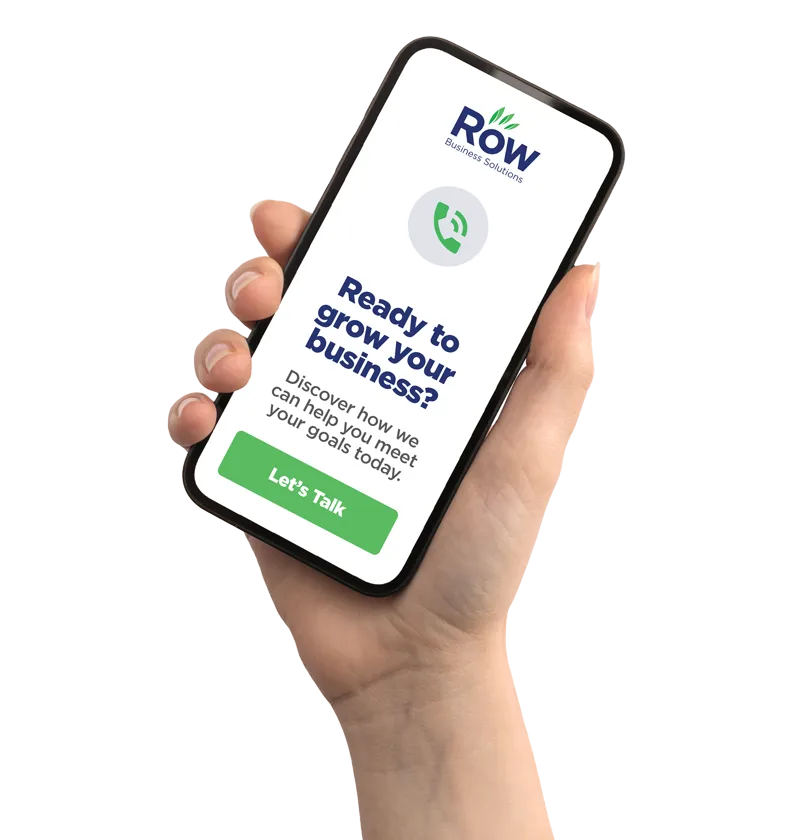How Search Engine Marketing Helps Your Business
Search engine marketing (SEM) is the practice of buying traffic for your website by increasing its visibility in search engine results pages. In order to do this, you have to understand how search engines work, what keywords are relevant to your business, and which ones will get you the most exposure.
Written by: Row Business Solutions

Introduction
Search engine marketing (SEM) is the practice of buying traffic for your website by increasing its visibility in search engine results pages. By pursuing SEM, you can increase your website traffic, improve lead quality and generate more revenue from your website. You can employ two main methods for SEM campaigns: organic search engine optimization (SEO) and paid search ads, also known as pay-per-click (PPC). With SEO, you create informative content on your website in hopes of attracting people who are looking for certain keywords. With PPC, you advertise on search engines through paid ads. To do this, you bid on certain keywords that users might search for in order to reach your site
Search Engine Marketing (SEM) is the practice of buying traffic for your website by increasing its visibility in search engine results pages.
Search engine marketing (SEM) is the practice of buying traffic for your website by increasing its visibility in search engine results pages. In order to do this, you have to understand how search engines work, what keywords are relevant to your business, and which ones will get you the most exposure.
A basic understanding of SEM can help you improve your company's online presence and grow your business.
By pursuing SEM, you can increase your website traffic, improve lead quality and generate more revenue from your website.
By pursuing SEM, you can increase your website traffic, improve lead quality and generate more revenue from your website.
It's important to note that the cost of SEM varies depending on the industry you're in and how much competition there is for keywords in your industry.
You can employ two main methods for SEM campaigns: organic search engine optimization (SEO) and paid search ads, also known as pay-per-click (PPC).
SEM is a great way to get more traffic to your site. It’s free and can be very effective because it reaches people who are actively searching for what you sell. It’s also a good way to increase your website’s authority in the eyes of search engines, which means more people will find it when they search online.
You can employ two main methods for SEM campaigns: organic search engine optimization (SEO) and paid search ads, also known as pay-per-click (PPC). Organic SEO is the process of improving the visibility of your website on search engines such as Google by creating content that attracts relevant links from other websites or social media pages. PPC advertising allows you to directly target potential customers with advertisements when they search for certain keywords related to what you offer.
With SEO, you create informative content on your website in hopes of attracting people who are looking for certain keywords.
With SEO, you create informative content on your website in hopes of attracting people who are looking for certain keywords. For example, if you own an auto repair shop and wanted to attract customers who were looking for “car wash specials” or “new transmission services in town,” then you would create content that included those terms. You would also include those same keywords when writing titles and meta descriptions (i.e., the short summary texts shown with search results).
It's important to note that there is no set formula for using keywords in your blog posts. The most important thing is that the words appear naturally within the body text so Google knows what message you're trying to convey without changing their algorithm and penalizing your site at some point down the line.
With PPC, you advertise on search engines through paid ads. To do this, you bid on certain keywords that users might search for in order to reach your site.
With PPC, you advertise on search engines through paid ads. To do this, you bid on certain keywords that users might search for in order to reach your site. With each click on the ad, you pay a certain amount of money (called the "bid").
There are also other factors that go into determining how much you will pay per click; for example:
- The quality score of your ad
- The relevancy score of your keyword and landing page (the page where users land after clicking an ad)
- Your competition
Search engine marketing is a great way to get more traffic to your website by increasing its visibility in the SERPs
Search engine marketing is a great way to get more traffic to your website by increasing its visibility in the SERPs. In contrast, organic SEO and pay-per-click (PPC) advertising both take time to have an effect on your business.
- Pay-per-click (PPC): This type of advertising includes Google AdWords, Bing Ads, and Facebook Ads. When you click on an ad from any of these platforms, you are taken directly to the advertiser's landing page where they can try to convert you into a customer with their sales pitch or offer. While PPC ads tend to be very affordable for small businesses who want quick results without having to wait months or years for organic rankings, they can also be expensive if not managed properly.
- Organic SEO: Search engines like Google rank websites based on relevance and user experience - how well those sites meet the needs of their users as determined by what they search online. If a user searches "best restaurants in New York City" and finds good reviews about one particular restaurant after reading through several pages worth of results from different websites (with SEO), he'll likely choose that one over his competitors' options since it was shown higher up on Google's list due for being more relevant than theirs were at first glance!
Conclusion
Search engine marketing (SEM) is a great way to get more traffic to your website by increasing its visibility in search engine results pages (SERPs). SEM is a marketing strategy that uses various digital strategies, such as pay-per-click ads and organic SEO, to drive targeted traffic from the web. By pursuing SEM campaigns, businesses can increase their website traffic, improve lead quality and generate more revenue from their websites. The best part about these strategies is that they don’t require any upfront capital investments!





